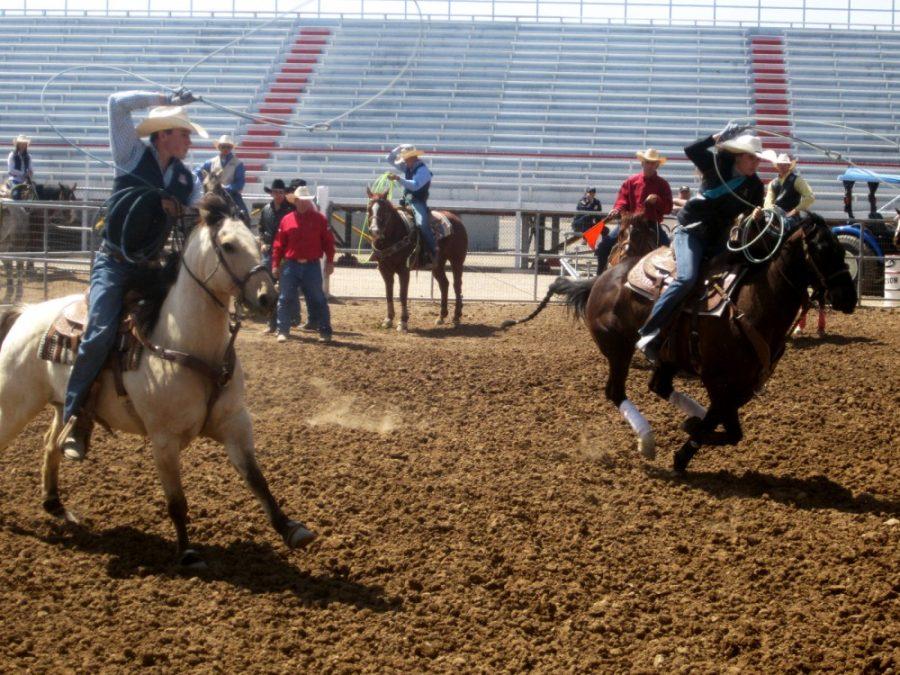For Ben Saylor, an animal sciences junior, Rodeo Club is more than just a hobby.
Rodeo is where it all began, and the UA club has the duty of reminding the community about its roots, Saylor, the club’s president, said.
“I don’t want people to forget where we came from,” Saylor said. “I just feel like rodeo stems from the cattle industry and agriculture. I feel like I’m a part of something greater.”
The idea of tradition is huge in the club, as the UA has the oldest intercollegiate rodeo club in the country, Saylor added. The club is celebrating its 75th year, honoring an enduring tradition of the Southwestern U.S.
“It’s like a pastime,” Saylor said. “We started as a nation of agriculture and cattle.”
Saylor said he believes the community should care about the country’s history, and he tries to make that a goal of the club.
“The purpose of the club is to preserve Western heritage on the college campus,” Saylor said. “I think the biggest thing is word of mouth — talking to people about it is acknowledging the past.”
Saylor added that he wants to make rodeo more prevalent on the college campus.
“On the entertainment venue, rodeo is still huge, and it’s still just as exciting as it’s ever been, but I think as a society we kind of forget about it,” Saylor said. “I think it’s important that students recognize that we have the oldest rodeo club in the country. For a while, we were pretty quiet and pretty small. That’s starting to change.”
Carollann Scott, a journalism senior and vice president of the club, has been competing in rodeo since she was 4 years old. She said rodeo is something she plans to keep in her life.
“It’s something that’s always been part of my life, and it always will be in the future,” Scott said. “Rodeo is really a lifestyle for me.”
Scott said that maintaining the region’s culture is an important goal in rodeo.
“It means a lot to me to be a part of the celebration of our past,” Scott said.
John Marchello, the club’s adviser and an animal sciences professor, has been advising the club for 46 years.
“I’ve seen a lot of the cowboys and cowgirls get their degrees and become successful in their endeavors,” Marchello said. “They put a lot of time into practicing, so that’s great.”
Marchello said it costs around $10,000 to put on just one rodeo, and there are 10 each year. In addition to paying for production, members also pay their own way. It costs at least $100 per person for each rodeo, which means the club has to learn to be self-sufficient, Saylor said.
Saylor added that the club works hard not only at practice, but also to raise the funds.
The UA Rodeo Club has competed in the National Intercollegiate Rodeo Association circuit and has won a number of national championships in its 75 years.
This is not the only challenge the club must overcome, according to Saylor, who said rodeo faces a lot of criticism from animal rights organizations. Rodeo clubs like the one at the UA are accused of animal abuse and mistreatment, he said.
“They say that our goal is to hurt animals, and injuries get taken out of context,” Saylor said. “Animals get hurt, but people get hurt more. Nobody wants to hurt their animals, but we receive a lot of criticism.”
Despite criticism, for some members, the UA Rodeo Club has served as a bonding experience.
“I think all the events and friends I’ve made have been things I will never forget,” Scott said. “It will make me a better person.”









